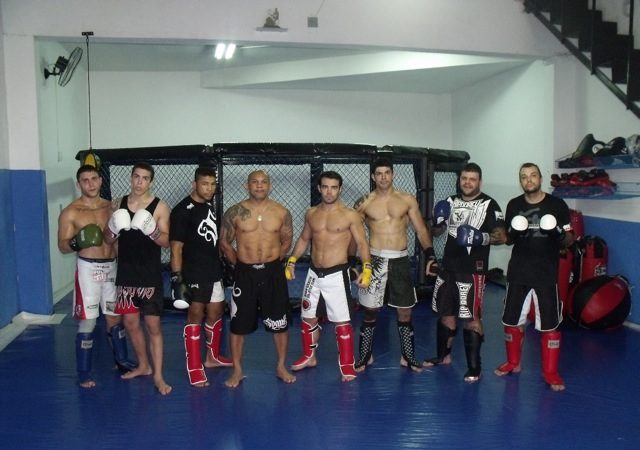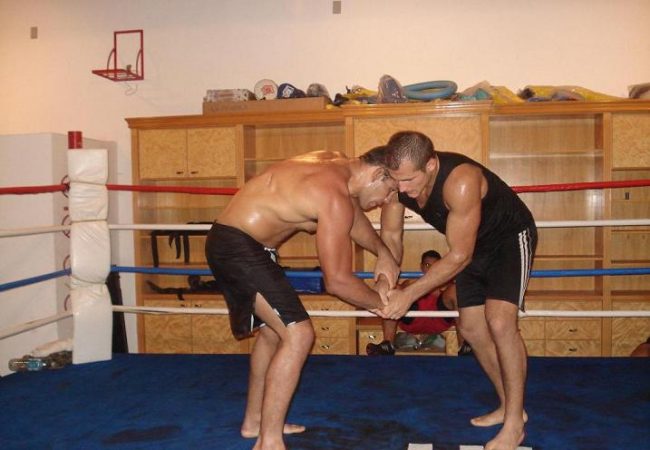
Anderson in photo by Josh Hedges
“Fighting in the octagon is a metaphor for man’s struggle to affirm his place in the world, to survive, and to be loved,” says Brazilian movie director Henrique Goldman in an article on the front page of the culture section in today’s “O Globo” newspaper.
Now film producer Gláucia Camargos adds: “MMA is a way to climb the social ladder, like soccer. Underprivileged people can become champions.”
For these and other takes on MMA’s place in the world, the newspaper serves up an article by Mauro Ventura entitled “Cinema de luta” (“Fight Cinema”), which takes a look at dozens of movies, documentaries and works of fiction about MMA that have been produced or are planned for production. “MMA (…) has struck a chord with the Brazilian public and consequently with film makers,” says Ventura’s piece.
Among the full-length features mentioned is the award-winning documentary “Like Water”, about Anderson Silva; docudrama “Minotauro”, about Rodrigo Minotauro; “Os Gracie e o nascimento do vale-tudo” (The Gracies and the birth of MMA); the story of José Aldo (fiction); “Rinha”, about São Paulo’s gambling MMA underworld; “Dias de luta” (Fighting days), about MMA in Rios favelas; the life of Fábio Leão, who spent ten years in jail and found salvation through the martial arts; and Goldman’s own “O cara” (The Man), about a young fighter and an old master.
“It’s violence that saves people. They channel their energy through a healthy path,” says Eduardo Brand, director of “Dias de luta”.
The cultural interest in Jiu-Jitsu and MMA is not limited to the cinema. On the list of keynote speakers at Rio de Janeiro’s prestigious Casa do Saber, amid journalists, sociologists, actresses and psychoanalysts, the date November 4 is reserved for a guy with a law degree who knows the origins of the UFC like few do: its founder, Rorion Gracie.



